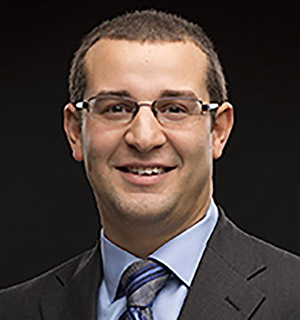Keynote Speakers
 Technically an ELL”: The Production of Raciolinguistic Categories in a Dual Language School
Technically an ELL”: The Production of Raciolinguistic Categories in a Dual Language School
Nelson Flores
Raciolinguistic ideologies co-construct language and race in ways that frame the language practices of racialized communities as inherently deficient. One manifestation of raciolinguistic ideologies imposed on Latinx communities is that they have failed to fully master either English or Spanish. This presentation will examine one raciolinguistic category that has emerged from this discourse—students who are institutionally designated as English Learners (ELs) but who are also positioned by their teachers as more dominant in English than in Spanish. I offer case studies of three students at a dual language school in a segregated primarily Latinx community who fit this linguistic profile. I examine the ways that teachers working with these students struggle to make sense of this seeming contradiction often resorting to deficit perspectives as an explanation. I end with implications of these findings for developing new conceptualizations of the language practices of Latinx students that resist raciolinguistic ideologies.
Source: Flores, N. and Rosa, J. (2015). Undoing appropriateness: Raciolinguistic ideologies and language diversity in education. Harvard Educational Review, 85, 149-171.
 Switching Palabras
Switching Palabras
Giuli Dussias
A looming belief among educators and parents is that codeswitching (the alternating use of two languages within a single sentence) a sign of linguistic anomaly. Yet, research reveals that bilinguals who habitually engage in codeswitching do not haphazardly switch between languages. From a psycholinguistic perspective, codeswitching bears the hallmark of cross-language activation and represents a research tool to examine how bilinguals systematically (dis)engage two languages. In this talk, I will discuss how through Bilingualism Matters, we have used the research on code-switching to reach out to the public to clarify the role of code-switching as a patterned-governed communicative behavior to which speakers conform, and to explain how codeswitching can be an important tool in the advancement of the scientific study of language and the brain.
Source: Judith F. Kroll and Paola E. Dussias, Language and Productivity for All Americans (Cambridge, Mass.: American Academy of Arts and Sciences, 2016.
 Promoting Translingual Subjectivities
Promoting Translingual Subjectivities
Robert Jimenez
There are close to 5 million students in U.S. schools who are considered English language learners which is a little more than 20 percent of the total. Within a few years this number will climb to 25 percent. This student population has long been isolated and marginalized in U.S. schools but, like the global population of bilingual and multilingual persons, these students are increasingly becoming the linguistic norm. If this is the case, and demographic reports support this view, there is good reason to ask how might language and literacy instruction support the cognitive, linguistic and social development of healthy, robust, and academically successful translingual students? In this presentation I present theoretical support for translanguaging pedagogy, followed by a description of my TRANSLATE project, and I finish with examples of how translanguaging activity promotes translingual subjectivities.
Sources: Jiménez, R. T., David, S., Fagan, K., Risko, V. Pacheco, M., Pray, L., Gonzales, M. (2015). Using Translation to Drive Conceptual Development for Students Becoming Literate in English as an Additional Language. Research in the Teaching of English, 49(3), 248-271.
David, S., Pacheco, M.B., Jiménez, R.T. (manuscript accepted for publication). Designing translingual pedagogies: exploring collaborative translation through a classroom teaching experiment. Cognition and Instruction. (I will send you the current version of this paper)
Pacheco, M. B., David, S. S., & Jiménez, R. T. (2015). Translating pedagogies: Leveraging students' heritage languages in the literacy classroom. Middle Grades Research Journal, 10 (1), 49-63.
Puzio, K., Keyes, C. S., Cole, M. W., & Jiménez, R. T. (2013). Language differentiation: Collaborative translation to support bilingual readingBilingual Research Journal, 36(3), 329-349.
 Towards a Better Scientific and Public Understanding of Bilingualism
Towards a Better Scientific and Public Understanding of Bilingualism
Antonella Sorace of the University of Edinburgh and Bilingualism Matters
There are many widespread misconceptions about what it means to learn more than one language in childhood and adulthood: for example, many people still think that early bilingualism makes children confused and puts them at a disadvantage at school. Research, in contrast, shows that where there are differences between monolingual and bilingual children, these are almost invariably in favour of bilinguals: bilingual children tend to have enhanced metalinguistic skills and language learning abilities, a better understanding of other people’s points of view, and more mental flexibility in dealing with complex situations. Some of these benefits have also been found in bilingual adults of all ages. However, misinterpretations of these findings have created new myths which point to bilingualism as a panacea. I will argue, with examples, that we need two types of ‘bridges’ to debunk old and new myths: bridges that connect different research fields to help understand the interacting cognitive and social factors affecting bilingualism, and bridges to bring a balanced picture of bilingualism research to people from all sectors of society who need to make informed decisions.